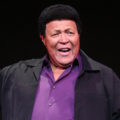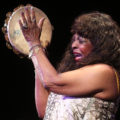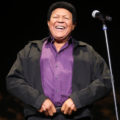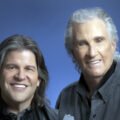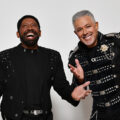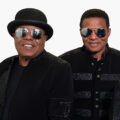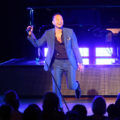Des Plaines Theatre “Dancing In The Streets” over the “Heat Wave” of Motown’s Martha Reeves
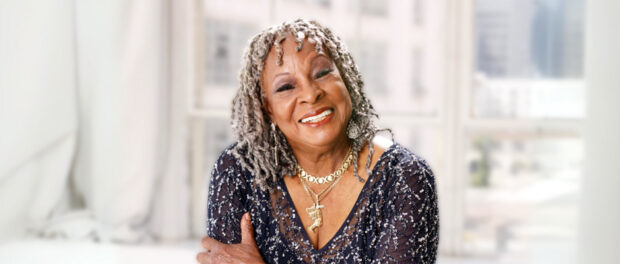 Photo provided by Des Plaines Theatre
Photo provided by Des Plaines Theatre
Prior to finding global fame as the superstar singer behind “Dancing In The Street,” “Jimmy Mack,” “Heat Wave,” “Nowhere To Run” and tons more, Martha Reeves could be heard belting out gospel in church, then holding down harmonies in the girl group The Del-Phis, followed by a season of juggling day jobs while crooning jazz and blues around Detroit’s most prestigious nightclubs.
But after a chance meeting with a Motown executive one evening and showing up at his Hitsville U.S.A. office the very next morning, albeit unannounced and without an appointment, she quickly went from temporarily answering the phone, to officially working in the A&R (artists and repertoire) department, backing up the mighty Marvin Gaye and becoming the legendary leader of The Vandellas.
In other words, few had a more direct role in the entire musical movement than this Rock and Roll Hall of Famer, who at 82, continues to tell the trailblazing tale to not only Chicago Concert Reviews, but stages such as the Des Plaines Theatre, where on Saturday, October 7, she’ll be joined by former members of The Temptations, The Platters, The Drifters and Four Tops for the “Voices Of Classic Soul” Tour.
What do you remember about coming to town in the past?
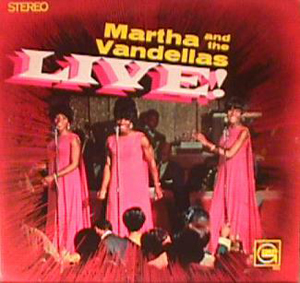 Martha Reeves: The Taste of Chicago. I’ve been there twice. That’s exciting and we played the Regal Theater. We were with the likes of Jerry Butler, who had welcomed us to Chicago. Gene Chandler’s one of my favorite people. He just came to Detroit for a rhythm and blues award show. I’ve got real close friends that I met in ’62 and I still communicate with them. The Regal Theater was a hot place to be. I’ve been all over Chicago, but those places stick out in my mind most.
Martha Reeves: The Taste of Chicago. I’ve been there twice. That’s exciting and we played the Regal Theater. We were with the likes of Jerry Butler, who had welcomed us to Chicago. Gene Chandler’s one of my favorite people. He just came to Detroit for a rhythm and blues award show. I’ve got real close friends that I met in ’62 and I still communicate with them. The Regal Theater was a hot place to be. I’ve been all over Chicago, but those places stick out in my mind most.
Tell us about the “Voices Of Classic Soul.”
Reeves: It’s the first of a series that we’ll be doing through Utopia talent agency. Murray Kay was our agent years ago and his daughter, Wendy Kay, has taken over since he [passed away]. She’s come up with these ’60s and ’70s acts, and put it in a package…We’re gonna headline. And now she’s working in the capacity where it’s very much needed. The ’60s and ’70s acts have to have their place on the stage too cause hip-hop, and country and western has kind of taken over, but we still have people who want to see us. I’m so happy and thrilled to be coming to [Des Plaines].
What are you bringing to your part of the show?
Reeves: What I always bring (laughs), Motown! We’ll be doing the same show we’ve been doing for 65 years cause you can’t change the songs. That’s what people want to hear you sing, but we’ll have little treats that will bring everybody right on back to the Motown sound and the magic of it. We have magical music. I’ve known it from the very beginning and it’s because we’re a family. Our first Motown Revue was Stevie Wonder starring, although he was only 11-years-old (laughs). Nobody wanted to go on stage behind Stevie Wonder! And we had The Supremes on there with “Stop! In The Name Of Love,” and we had The Temptations with “My Girl,” and we had the Four Tops with “I Can’t Help Myself,” and we had The Miracles. Smokey [Robinson] was starring, and he had “Shop Around.” We just lost Barrett Strong. He was singing “Money” and The Marvelettes had “Please Mr. Postman.”
We only did like two songs apiece and Smokey, being the star, I think he did three all together and we all did the finale on “Mickey’s Monkey.” But the music kept us and sustained us all these years, and the fans are the best. We’ve got the best fans in the world, supported and made us famous. But it’s you DJs, and journalists, and lovers of the art of entertainment who have kept our name our there, and kept us alive, and my hat goes off to all of you. We are definitely proud to still exist after everything we have gone through. I’ve been on four major labels and I continue to record. Our fans are still there and still standing strong with us. I couldn’t be more grateful…I’m glad to be an alumna. I’m glad to be one of the forerunners. I can say that I helped develop the Motown sound.
At what point did you step out from working behind the scenes at Motown?
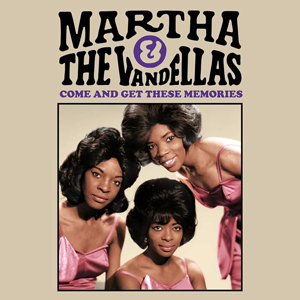 Reeves: I had sang a demo for Mary Wells, who was leaving the company, called “I’ll Have to Let Him Go,” and they liked me so much on it, they decided that would be my first record. When they wanted to record Marvin Gaye on “Stubborn Kind Of Fellow,” I called my girlfriends in, and when they heard our harmony, they decided to make it a group. “Martha, Holland-Dozier-Holland heard you do the back-up on Marvin Gaye, so they’ve got a song for you, ‘Come And Get These Memories.’” It’s the first song that Eddie [Holland], Brian [Holland] and Lamont [Dozier] had sang together. So when they heard Rosalind [Ashford-Holmes], Annette [Beard-Helton] and Gloria [Williams] singing behind Marvin Gaye on “Stubborn Kind Of Fellow,” they said, “We want to cut a record on this group.”
Reeves: I had sang a demo for Mary Wells, who was leaving the company, called “I’ll Have to Let Him Go,” and they liked me so much on it, they decided that would be my first record. When they wanted to record Marvin Gaye on “Stubborn Kind Of Fellow,” I called my girlfriends in, and when they heard our harmony, they decided to make it a group. “Martha, Holland-Dozier-Holland heard you do the back-up on Marvin Gaye, so they’ve got a song for you, ‘Come And Get These Memories.’” It’s the first song that Eddie [Holland], Brian [Holland] and Lamont [Dozier] had sang together. So when they heard Rosalind [Ashford-Holmes], Annette [Beard-Helton] and Gloria [Williams] singing behind Marvin Gaye on “Stubborn Kind Of Fellow,” they said, “We want to cut a record on this group.”
If you listen to “Come And Get These Memories,” the first notes there is like a three-part harmony, but there’s jazz. A lot of people didn’t recognize the chord changes are jazz changes, so these learned musicians put that music so well together, and Eddie, Brian and Lamont sang those harmony parts for us, and had us sounding so good, they made us a group. And Martha was the first one to get her name out there, when they put Reeves on the end of my name [as Martha Reeves And The Vandellas], cause I earned it, cause one of the girls quit, and I was working in A&R department with all of the producers, and I was cutting record after record. They decided to give me Reeves, and to my surprise, they gave Diana Ross her last name and they gave Smokey Robinson his last name all because I got my last name…
What did life look like during the Motown explosion that you helped ignite?
Reeves: Motown had 17 writers and producers in that one department, but it was a little tiny room and I was the secretary. They would come in there and ask for words that rhymed. They would ask me for things out of the thesaurus and what makes sense. “Sing this line” and I’d wind up with the songs cause I could sing in any key. I’m trained. And Motown had an artist development where they taught us to perform in large places like the Copacabana and the Paramount Theater. We did the theater circuit the first years of our lives as Motown artists, five or six acts on the show, you do two numbers, and wait for the finale, and you do four to five shows a day. Life is easy now, but then, you had to compete to get the best songs from the producers. I didn’t have to compete cause I was getting all the good songs (laughs).
When I first heard “Dancing In The Street,” I had finished my artist development across the street. [Founder Berry Gordy] brought about ten houses on West End Boulevard, so he had the artist development department across the street. I had finished my exercises with Professor Maxine Powell, who taught us social grace. I have to remind people that we were the first acts that went on the road in the South and were allowed to sit at the counters. So Motown made sure that when we did get the opportunity to sit at the counters that we were polite and had manners. She taught us how to be gracious. She taught us how to be ladies. I was a bit rough cause I had six brothers. I had to learn how to box real early (laughs). I had two older brothers, but the rest of those four boys, I used to have to take my fist and just fight ‘em back, and it was just to toughen us up. Momma and Dad had six girls and six boys, so I’m the third child, the first girl. What would you call me, the Cinderella? I had to take care of eight of those youngsters (laughs).
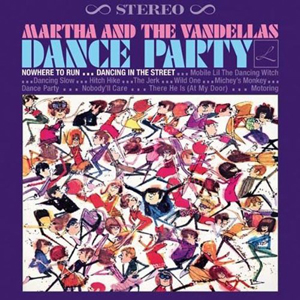 Two of ‘em sing with me now, so it worked. God is good. You don’t know what’s going to happen when you grow on up, but Momma used to always tell me, “Do the best you can the first time baby, then you don’t have to repeat it or be sorry about it.” I did the same train of thought when I performed, when I went in the studio with the guys. I had a reputation of being one or two takes cause I practiced before I went in the studio, and when I got in there, then I would be ready to sing whatever songs the guys had chosen for me to sing in whatever key they sang it in, so that’s why I got songs like “Nowhere To Run,” “Heat Wave” or “Jimmy Mack” and “Jimmy Mack” was somebody in the military who went to war…The guys wrote the songs. I interpreted them as a woman and wound up with a lot of hits. I know I’m blessed. Nobody else had that kind of an opportunity. Not even The Supremes…
Two of ‘em sing with me now, so it worked. God is good. You don’t know what’s going to happen when you grow on up, but Momma used to always tell me, “Do the best you can the first time baby, then you don’t have to repeat it or be sorry about it.” I did the same train of thought when I performed, when I went in the studio with the guys. I had a reputation of being one or two takes cause I practiced before I went in the studio, and when I got in there, then I would be ready to sing whatever songs the guys had chosen for me to sing in whatever key they sang it in, so that’s why I got songs like “Nowhere To Run,” “Heat Wave” or “Jimmy Mack” and “Jimmy Mack” was somebody in the military who went to war…The guys wrote the songs. I interpreted them as a woman and wound up with a lot of hits. I know I’m blessed. Nobody else had that kind of an opportunity. Not even The Supremes…
How did “Dancing In The Street” become your signature song?
Reeves: Marvin was recording “Dancing In The Street.” He was in there with those earphones singing, “callin’ out around the world, are you ready for a brand new beat, summer’s here and the time is right, for dancing in the street” just like he was singing to some girl personally. He was singing and I was standing. I always followed Marvin around. I was a stalker. I thought he was so fine. I wouldn’t get in his face and he would tolerate it because we sang so beautifully behind him on “Stubborn Kind Of Fellow,” “Hitch Hike” and “Pride And Joy.” Every time I saw him, I guess I would just be love struck, and when he looked over and saw me in awe of him, he said, “Hey, let’s try this song on Martha.” I was about to faint because I never thought he even saw me, you know?
When I tried it the first time, I couldn’t sing it like he was singing it, but I’m singing it in his key and taking that note that he was singing to the third of the chord. I think that’s where the excitement came in. I remember the bull fighting in Spain (hums the music), “charge” and the bull runs out. That’s what (hums) sounds like to me. It sounds like “charge!” I came out [with that in mind] and the energy that I had. I had learned the song watching Marvin sing it, but I wanted to sing it the way I felt it, and when I did, they were hitting each other’s hands and high fiving. [But] in the control room through that glass, Lawrence Horn the engineer said, “Man, I didn’t turn the machine on,” so they came to me, and looked in my face, and I guess I was looking like I was getting ready to just explode. They said, “Martha we didn’t have the machine on. Can you do it again?” And I said, “yeah,” so it became [officially recorded with] a little bit of excitement, a little anxiety and a little anger just because they didn’t tape it the first time.
So many artists have remade that song and so much of your music.
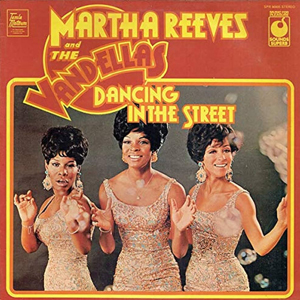 Reeves: All of ‘em. I want to sing my own song. I went to see Barry Manilow. He had a girl singing background for him. We were on the same label, Arista, and I’ve done shows with him. Barry was good, but he had this girl singing my song and a good arrangement because he had some fantastic musicians. In fact, I think he had about 15 musicians on that stage. The little girls after the show, they were saying, “Oh, we love your song.” I said, “Yeah, I want to sing it myself.” And I made them think I was angry, but I was only kidding. Kelly Clarkson sang it and Jennifer Lopez, Jennifer Holliday. I even had a chance to sing it in harmony with Freda Payne over in England when we toured on the “Dancing In The Street” Tour. I mean everybody sang it, everybody loves it, but it was Marvin Gaye’s song. He just gave it to me, haha (laughs).
Reeves: All of ‘em. I want to sing my own song. I went to see Barry Manilow. He had a girl singing background for him. We were on the same label, Arista, and I’ve done shows with him. Barry was good, but he had this girl singing my song and a good arrangement because he had some fantastic musicians. In fact, I think he had about 15 musicians on that stage. The little girls after the show, they were saying, “Oh, we love your song.” I said, “Yeah, I want to sing it myself.” And I made them think I was angry, but I was only kidding. Kelly Clarkson sang it and Jennifer Lopez, Jennifer Holliday. I even had a chance to sing it in harmony with Freda Payne over in England when we toured on the “Dancing In The Street” Tour. I mean everybody sang it, everybody loves it, but it was Marvin Gaye’s song. He just gave it to me, haha (laughs).
In what ways do you feel like you’ve blazed trails for younger artists and why has this music lasted so long in general?
Reeves: Motown afforded us teachers, so we were trained. I think we encouraged other people to learn how to read music and learn how to perform. We were reminiscent of the vaudeville days, the jitterbug era [and were influenced by] jazz. We had a wonderful band and band leaders…They taught us what people did prior to us. I idolized Lena Horne, Dinah Washington and Sarah Vaughan. The musicians were mostly jazz people who played with Count Basie, Duke Ellington, Ray Charles, James Brown and big bands. Those guys were a collection of the finest musicians to be had in our era and I know that’s why the music has lasted cause good musicians play good music.
What do you hope people will take away from your story?
Reeves: Oh, I’ve got a good track record. We’ve been everywhere and did everything…Sometimes when I listen to the machines that they call “making music,” that’s what they call that hip-hop, they don’t have one solid musician teaching them how to sing and giving them the right notes. They’re making sounds that could stop your pacemaker or deafen you, eventually, if you listen to it enough and let that roar that you feel in your seat go through your ears. I think that’s hurting people and there are more ads for hearing aids on television than I ever thought I wanted to see. We’ve gotta do something about that. Get our youth into studying music and to listen to Beethoven, and Strauss, and Duke Ellington, and Count Basie, and the Motown sound, and hear what real musicianship can do for your spirit. Our music lifts the sprit. It brings people out of solitary moods and makes them know that the world can dance in the street. We can all be happy.
Martha Reeves performs at the Des Plaines Theatre on Saturday, October 7. For additional details, visit MarthaReeves.net and DesPlainesTheatre.com.

